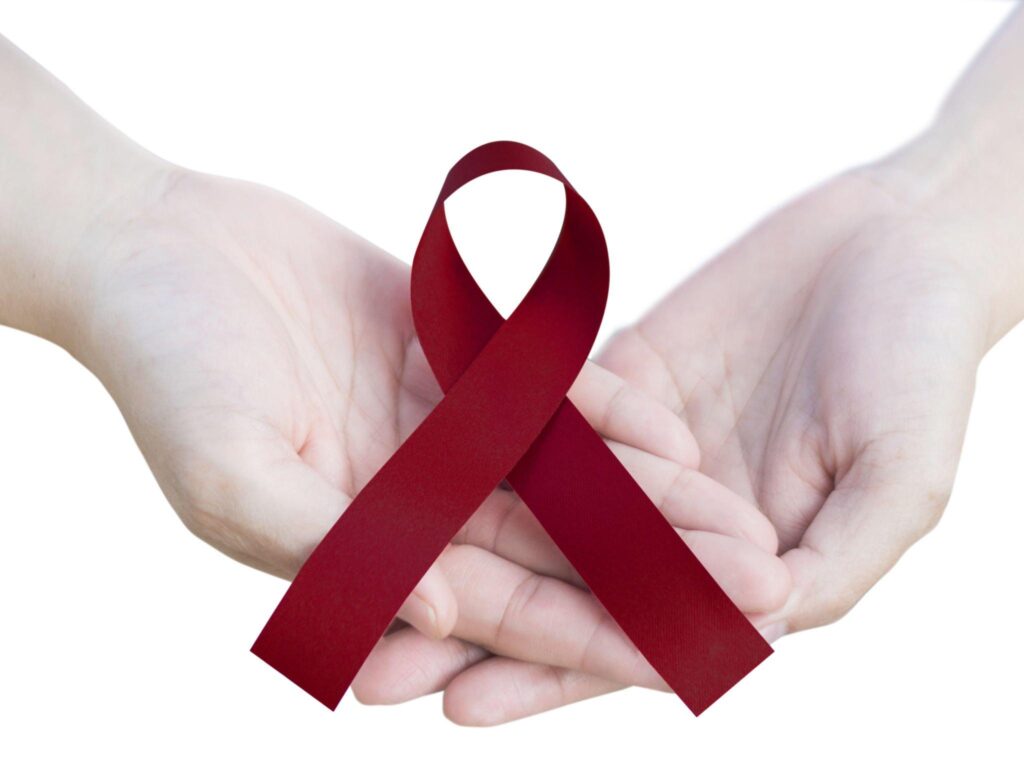Who We Are
We are a compassionate and dedicated team committed to providing expert care and support for individuals living with Sickle Cell Disease.

Sickle Cell Cares Foundation Inc
The Sickle Cell Cares Foundation was established in the Commonwealth of Dominica in January 2013. The founder Kellyn George is herself a sickle cell patient who has had boughts of crisis throughout her life. Kellyn is currently twenty-eight years old and has defied survival odds based on historical life expectancy data on sickle cell patients. Over a lifetime of sickle cell crisis, Kellyn has learnt to manage the disease through many trial periods. Sickle Cell Cares Foundation was established to provide support to those inflicted with the disease with a view to providing awareness and solutions to maintain a healthy lifestyle where sickle cell crises are minimized.
Our Mission
Our Vision
Our History
Sickle Cell Disease is the name given to Sickle Cell Anaemia, Sickle Cell trait, and Beta Thalassemia collectively. This disease is an inherited genetic mutation that causes red blood cells to become abnormally shaped, and thus restricting the amount of oxygen the cell is able to carry. The abnormal, or sickle, shape of the red blood cells causes them to clump together forming clots that get stuck in blood vessels. Sickle-cell disease, or sickle-cell anemia or sometimes drepanocytosis, is a hereditary blood disorder, Sickle-cell disease is associated with a number of acute and chronic health problems, such as severe infections, attacks of severe pain, and stroke, and there is an increased risk of death. Sickle-cell disease occurs when a person inherits two abnormal copies of the hemoglobin gene, one from each parent. Several subtypes exist, depending on the exact mutation in each hemoglobin gene. A person with a single abnormal copy does not experience symptoms and is said to have sickle-cell trait.

Dr Ned Palmer
Ned Palmer, MD, MPH is a member of the global health faculty and an inpatient hospitalist at Boston Children’s Hospital and on faculty at the Center for Bioethics at Harvard Medical School. He received his MD from Ross University School of Medicine in Dominica, and his MPH in Global Health from the Harvard T.H. Chan School of Public Health. His clinical work in global health has spanned 4 continents with time spent in Laos, Dominica, Palestine, Malawi, and the Navajo Nation. His research is in health system resiliency and the humanitarian space, focused on Small-Island Development States in the Caribbean. His bioethical interests are in resource allocation and rationing, as well as equitable frameworks for global health practitioners.

Adeyosola Adebiyi
Ms Adebiyi is an educator, editor, and researcher. With an academic background in the biological/biomedical sciences, she has taught at all education levels and works in advocacy that focuses on healthcare and education. Frequently contributes to Sickle Cell Cares Foundation training and development conferences.

Rhesa Lawrence
Rhesa Lawrence was borna and raised in the quaint community of Goodwill. It is in this community that her love for volunteerism grew and flourished. With being a part of many church groups such as the St Alphonsus Alter Servers and Youth Group. In 2020 she graduated with an associate degree in Biology and chemistry from the Dominica State college and is currently pursuing a bachelor’s degree from Western Illinois University in Nutrition and Dietetics with projected end date of May 2024. Her entrepreneurial skills are displayed with the business she owns and grew over the course of five years called T3 Treats.

Michelle Daniel
Michelle Daniel hails from the city of Roseau, Commonwealth of Dominica, and has been an intern for SCCF since 2019. She graduated from Dominica State College in 2020 with her associate degree in Biology and Physics, obtaining Second and First-class honors respectively. She is currently attending Western Illinois University majoring in Biology focused on Medical Sciences, minor in Chemistry to pursue a career as a medical doctor – specifically a Neurosurgeon. Michelle is fueled by her passion for understanding the nuances of medical care in underdeveloped countries, and considers herself a “forever student,” eager to build on her academic foundations in STEM and learn more through varying experiences. She believes that being an intern with SCCF has heightened her appreciation for volunteerism and has helped her immensely in recognizing how patients of Sickle Cell and other diseases deserve more specialized care within Dominica’s Health system.
ACHIEVEMENTS (Michelle Daniel)
- One of the eight founding members of the Sickle Cell Cares Club (SCCC) at the Dominica State College.
- Acted as treasurer for SCCC, responsible for preparing and present budgets for new or ongoing work projects and fundraisers through the Sickle Cell Cares Club (SCCC).
- Responsible for typing and presenting financial reports on the club’s financial position to the rest of the executive board.
- Oversee the collection and record-keeping of each club member’s monthly membership contribution.
- Conducted varying social outreach projects i.e multiple Blood Drives for Sicklers through Dominica Red Cross; Interactive discussions & surveys at different high schools within Roseau, educating students on the sickle cell disease; hosting an annual Valentine’s Day fundraiser called ‘Cupid’s Love Affair’ which raised funds to assist the club and foundation in further local research and activities to disseminate information relating to Sickle Cell disease in Dominica.

